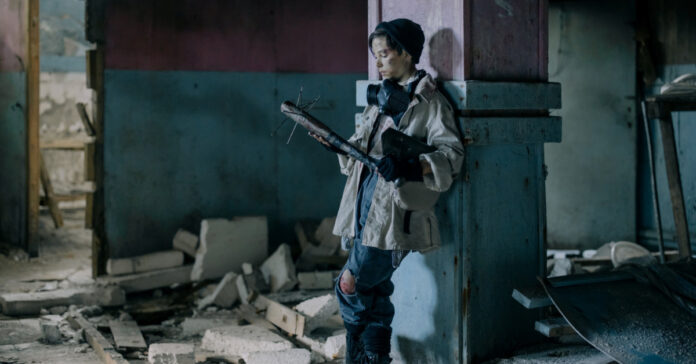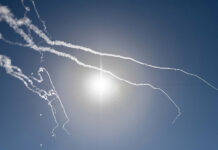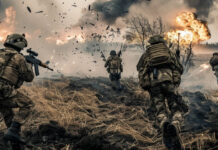
Preppers spend a great deal of time worrying what will happen to cause TEOTWAWKI. Will it be China? Russia? Another pandemic? A natural disaster? A currency collapse? For this article, I am going to ignore what caused the sh*t to hit the fan and concentrate on what your biggest challenges may be for the next days and months after the calamity.
For most of America, I think the biggest challenge will be a lack of electricity.
Living Without Electricity
Electricity is the thread that weaves together so much of our modern life. For most Americans, no electricity means no water, no heat, no refrigeration, no lighting, no communication, and no payment processing and a collapse of mass transportation, trucking and retail. In a few days, people are going to be hungry, thirsty, and desperate. Before long, people will die from diseases transmitted by drinking contaminated water or die of exposure. Others will be killed by desperate people who want their last bottle of water or crumb of food.
Retail will collapse because you can’t buy anything these days without electronic payment processing. A shocking number of Americans don’t carry cash. Stores will lose their refrigerated and frozen food. Fuel pumps won’t work.
In large parts of the country, those without a backup heat source won’t be able to survive the winter. Sure, your Gas Buddy propane heater is great in an emergency, but how many of those little propane bottles do you have? Even your buried 500-gallon propane tank will run out eventually.
In other parts of the country, people without air conditioning won’t be able to survive the summer.
You know that oft-quoted congressional study that said 90 percent of the population would be dead a year after an EMP strike? That’s not because of starvation and illnesses, although they may play a part, that’s because electricity is the linchpin of the American way of life.
Other People
You may die slowly of starvation after the SHTF, but you are more likely to be killed quickly by someone else. This is why cities will be a terrible place in which to try to survive.
Population density is the enemy of survival immediately after the SHTF. Besides the danger of being killed or enslaved by someone stronger or meaner than you, there will be huge sanitation issues and rampant disease once the sewers stop running or back up. Compounded with the lack of clean water, the result will be deadly.
Getting out of the cities will improve your chance of survival in a post-SHTF world. Starting out of the cities will improve it now and after the SHTF.
I’ve previously written about Joel Skousen’s book Strategic Relocation, which helps you pick the best place for your retreat based on multiple criteria, and that remains the best approach. But moving from Los Angeles to a home near one of the national forests in California is going to be an improvement. Likewise, while I wouldn’t advise moving to Massachusetts, but if you live in Boston, moving west and close to the Vermont border will get you some breathing room.
Let’s keep in mind that not all people are bad. You are better off with a small prepper group or community of like-minded individuals than you are on your own. That gives you someone to watch your back, to share the work (and there will be lots of work) and other burdens, and to love.
A Lack of Medical Care
In 1880, which is what I expect things will be like without electricity, the median lifespan was 39.41 years. In 2020, it was twice as high, 78.9 years. Better medical care had a great deal to do with that as infant mortality rates fell and more mother survived childbirth. We can’t ignore the development of antibiotics, either. Minor wounds in the Civil War that would kill you after infection set in became survivable by WWII, thanks largely to penicillin and sulfa drugs.
Antibiotics are credited with engendering the evolution of modern medicine, including treatments of cancer, open heart surgery, and many other surgical interventions that would kill the patient without antibiotics. Of course, today we have drugs for high blood pressure, stroke, heart disease, diabetes and a rash of other diseases that would otherwise kill people.
After the SHTF, those medicines will disappear. You should be hoarding antibiotics to treat serious injuries. Vitamins will run out and an aspirin or ibuprofen will become dear.
Without childhood vaccinations, the rate of child mortality will increase as common childhood illnesses like mumps, measles, rubella, and whooping cough return. That doesn’t even include diseases we believe no longer exist, like small pox and polio. Plus, even adults will one day have to worry about tetanus after our shots wear out.
Combine the lack of drugs, medical facilities with X-ray machines and MRIs, modern surgical suites, and skilled doctors and nurses, and you can see how life will be more deadly. Now use your imagination and imagine what happens if you are caught in violence caused by other people or an accidental injury caused by carelessness or chance. We’re going to miss the hospital.
Keep this in Mind as you Prep
I’m the first one to tell you that stockpiling food is important, but I hope this post shows that storing food is only the first step in prepping. Yeah, you need food, clean water, and shelter, but that will only do you so much good if you are barricaded in your suburban basement or your apartment listening to gunfire and the screams of your neighbors before someone lights your building on fire.
Even living in the country will not help if you slip and smack your head off a rock, bury the axe in your toe while splitting wood, or run out of your meds in 30 days. You gotta be prepared for all of that and more.
That’s why we call prepping a lifestyle, because no one can do it all in a year. Just keep at it. Prep while you still can.






